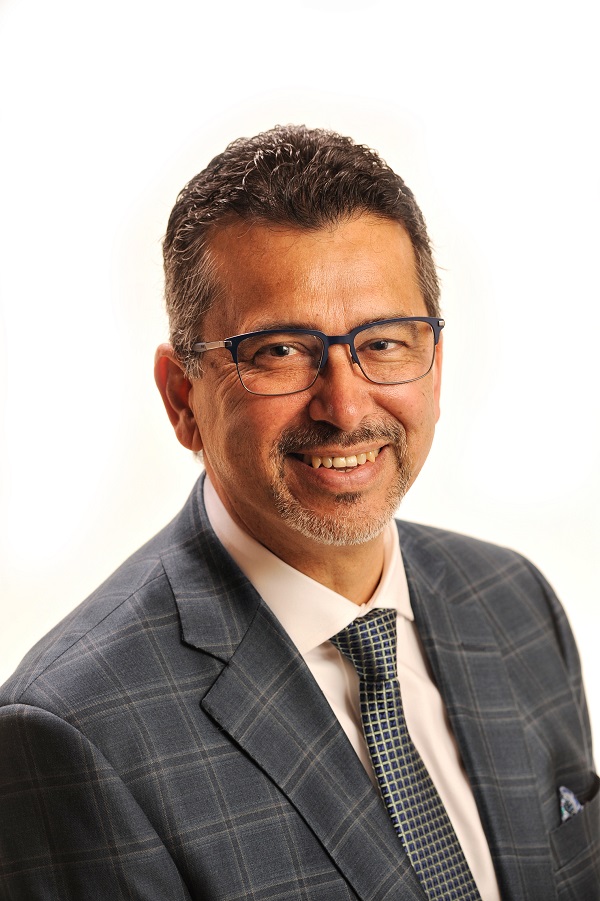Two of Opportunity Enterprises CEO Neil Samahon’s biggest passions are recycling and helping people with disabilities. As the CEO of Opportunity Enterprises, a nonprofit organization based in Valparaiso, Ind., that strives to help individuals with developmental disabilities reach their fullest potential, Samahon takes any chance he gets to marry those two passions, and has been doing so for several years. Samahon spoke with Scrap News about his background in recycling, what led him to becoming CEO of Opportunity Enterprises, and why businesses should consider adding individuals with disabilities to their workforce.
How did you end up working in the recycling industry?
I entered the recycling industry 27 years ago. Metro Recycling had a job opening for a manager of one of their yards. My background was in management and sales, but I didn’t have any recycling knowledge or experience. Fortunately, the staff at the yard had a lot of experience, so when I began managing the yard, I had some time to learn about the industry. Three years after joining Metro Recycling, I was named CEO, and that’s when my education in the world of scrap recycling really began. I got more involved in the industry. I also got involved with ISRI, which helped me learn more about the industry.

When were you introduced to ISRI?
I don’t remember the exact year, but I started attending some of the quarterly board meetings to become more educated. I wanted to learn more about the world of recycling outside of my immediate area. While attending the national meetings, I sat in on various committee meetings and picked up on areas that I needed to expand my knowledge. I started getting recruited by some of the committees, which was beneficial both personally and professionally. While I was getting involved at the national level, I was also getting involved with my local Indiana Chapter. I eventually served on the board of the Indiana Chapter. I also served as chapter president before I transitioned out of the industry into my current position as CEO of Opportunity Enterprises.
What led you to becoming the CEO of Opportunity Enterprises?
I became aware of Opportunity Enterprises 10 years ago. I toured the facility, and immediately had a great feeling about the organization. Compared to other organizations in this space that serve individuals with disabilities, you could tell there was a different level of empathy here.
I was drawn to the organization because I have a daughter with intellectual disabilities. At the time she was living in southern Illinois. When I moved to Valparaiso, she moved with me and started receiving services from Opportunity Enterprises. Around the same time, I started serving on the board of directors for Opportunity Enterprises. When the previous CEO retired, I contemplated what my next career move would be, and it ended up being the CEO of Opportunity Enterprises.
How have you used your recycling background to enhance Opportunity Enterprises?
As a board member, I was on the Social Enterprises committee because of my background in recycling. Opportunity Enterprises has a number of social enterprises that clients of the organization can work for. The goal of the social enterprises is to create more opportunities to employ individuals with disabilities. One of the enterprises is SecureShred, which provides confidential document destruction shredding and electronics recycling services for businesses and consumers. Once I became the CEO, I looked at all of our social enterprises and looked into ways we could rebrand them.
For SecureShred, it seemed like a natural progression to go into electronics recycling. My background wasn’t in electronics recycling, but I did have a relationship with [President] Jason Zeid of Universal Scrap Metals (USM) in Chicago. USM owns a company called BLH Computers, which repairs and sells reconditioned desktops, laptops, tablets, and other electronics. All components that are unable to be refurbished or resold are sent directly to USM and USMe (USM’s electronics assets division) for recycling, and Masters & Alloy (USM’s foundry) for refining. I spoke to Jason and asked if he could help us expand into electronics recycling, and he and his team have been a tremendous help. We’ve been able to branch out with confidence, and it’s been going really well so far.
What are some of the benefits of employing individuals with disabilities?
Just because an individual has a disability doesn’t mean they don’t have certain abilities that can benefit an organization. If employers are openminded, they’ll look and see that many individuals with disabilities can be quite productive, especially in jobs with repetitive tasks like electronics recycling.
So many businesses are looking for employees, so now is a great time to really explore if hiring someone with other abilities is suitable for their work environment. More people are open to it, and more often than not, once they’re open to it and have someone come in, they end up being quite beneficial to the organization. Sometimes you may have to change your process a little bit, but the benefits far outweigh any changes you may have to make, and they’re typically small.
People with disabilities shouldn’t be looked at as having disabilities. They should be looked at as having unique abilities or different abilities.
How did you learn about Blue Star Recyclers, and what did you all do during your respective visits to each other’s facilities?
I heard about Blue Star Recyclers and [CEO] Bill Morris through the e-Stewards initiative, which defines and promotes responsible electronics reuse and recycling best practices worldwide. When we started having conversations, I learned that Blue Star Recyclers’ mindset is very similar to ours, and I wanted to figure out how we could work together. We went to Denver to see how their workflow and facility are set up. We also spoke to some of their employees to see what we could learn from their operations. We shared information about our background, especially on the educational side, and that conversation continued when Bill and his team visited our facility. We’re both passionate about recycling and finding ways to provide opportunities for individuals with disabilities. We look forward to continuing those conversations.
Where do you see yourself and Opportunity Enterprises over the next year and beyond?
Hopefully right here at Opportunity Enterprises. It’s a great time to be here. Even though there are challenges, there are also great opportunities as we’re looking to expand what we’re doing in many different areas, not just in the world of recycling. Ultimately, we want to benefit our clients, and the greater community as well.
Opportunity Enterprises recently became an ISRI member, so I’m excited to be back in the fold. I don’t know if I’ll be able to be quite as involved as I was before, but I certainly understand the benefits of being an ISRI member, especially as I’m trying to grow out our recycling businesses through our social enterprises.
Opportunity Enterprises is a NAID AAA certified company. It is in the process of becoming eSteward certified, and will be seeking R2 Certification.
Photo courtesy of Neil Samahon.










